Theory Research
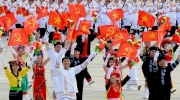
Awareness of democracy and democratization process in Vietnam in the renovation period: Actual situation and solution
(LLCT) - In the renovation process, the Communist Party of Vietnam has become more and more aware of the role of democracy and has focused on building the institution and regulations as well as renovating the mechanisms and policies to ensure people’s mastership is better and better. The democratization process in all fields of social life has created a great motivation for the renovation cause. However, it has not met the practical requirements; there have not been many fully solved in the awareness of democracy and democracy promotion in the condition of the only ruling Party. That reality requires the Party to further supplement new awareness and propose the solutions to promote the democratization process of Vietnam.

The development of theoretical awareness and practical experience in building the socialism of the Communist Party of Vietnam from the early 21st century until now
(LLCT) - After nearly 35 years of renovation, the theoretical awareness and practical experience of the Communist Party of Vietnam (CPV) in building socialism has continuously been asserted, reinforced, and developed. In the context of the Party is conducting a review of theory and practice for the upcoming 13th Party Congress, the article focuses on clarifying the development of the theoretical awareness and practical experience of the Party in building socialism in Vietnam.

Development of a green economy in Vietnam in the context of global climate change
(LLCT) - Given that the “brown economy” model is destroying the environment and depleting resources, developed countries have gradually shifted to a “green economy”. Greening development is defined as a way and means to implement sustainable development in the context of climate change. Vietnam is one of several countries strongly affected by global climate change. The issuance and implementation of the National Strategy on Green Growth and the National Strategy on climate change with a vision to 2045 has shown the political determination of the Party and the State in developing a green economy associated with the country's sustainable development.
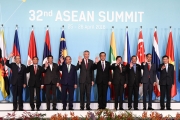
Identifying the objects of social development management in the market economy and international integration
(LLCT) - Social change in Vietnam is a "dual change" process, not only from traditional agricultural civilization to modern and industrial civilization, but also from the centralized planning management mechanism to the multi-sector commodity economy, under the regulation of the State, and then to a socialist-oriented market economy. The most typical social changes in Vietnam over the last 30 years of innovation include changes in social structure; changes in social stratification; changes in social mechanism / social institutions; changes in social relations; change in value systems, social norms; changes in the need for benefits; psychosocial change, behavioral patterns and lifestyles; labor structure change; changes of social welfare systems and social safety nets ... Clearly identifying the dimensions of social change is the basis for effective and sustainable social development management.
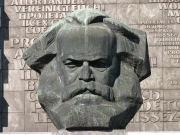
Theoretical values of Marxism integral to the cause of building socialism in the 21st century
(LLCT) - After “grasping the era with thought”, it can be said that a great revolution in awareness and world transformation has been carried out using Marxism. Marxism is not only a great awareness tool and a complete and close science which puts an end to the randomness and chaos in historical and political conceptions but also the method to transform the world deeply and comprehensively. Nowadays, the sustainable values of Marxism are still asserted, which makes great contributions to mankind by developing awareness about the era, foundation, develop ruling styles, and the characteristics of socialism including the path and method to build real socialism.
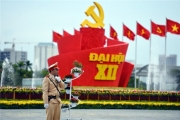
Discussion of the leadership and ruling contents of the Communist Party of Vietnam
(LLCT) - The 12th National Congress of the Party requested a study on the ruling Party and the ruling contents of the Party. The ruling contents of the Communist Party of Vietnam mean the activities and works the Party is able to or needs to do with a view to using and promoting the position and power stipulated by the Constitution so as to affect and govern the State and society in order to show that it deserves the position and responsibility of the ruling Party. The ruling and leadership contents of the Party have similarities and differences. Thus, a clear differentiation is required to avoid imposing all the leadership contents on the ruling contents of the Party and preventing the Party from making excuses or taking on and intervening incorrectly in the State’s works.
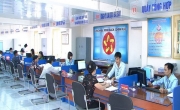
Maintain the Party’s discipline under the Ho Chi Minh spirit
(LLCT) - President Ho Chi Minh paid due attention to the issue of Party building on morality since early time, especially in his final work on the Party’s 39th founding anniversary (February 3, 1969): “Enhance revolutionary morality, wipe out individualism”. Thoroughly grasping his thought, the issue of preserving Party members' discipline must now be associated with the training of revolutionary morality and the fight against individualism; Party members take responsibility and actively act against corruption, waste, and bureaucracy.
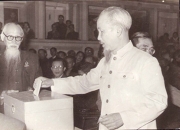
Relationship between “rule by virtue” and “rule by law” in Ho Chi Minh Thought on building a law-ruled State in Vietnam
(LLCT) - Ho Chi Minh Thought on building a law-ruled state is the inheritance of national tradition and our forefathers’ experiences of building and managing state, the result of experience, study, survey of numerous revolutions in the world. At the same time, Ho Chi Minh creatively applied the view of Marxism-Leninism on the new style state to Vietnam’s reality. One of the outstanding features in his thought on building a law-ruled state is that he advocated the sound relationship between “rule by virtue” and “rule by law”.
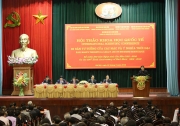
Humanism in Marxist theory and its epochal meaning
(LLCT) - One of the specific values creating the vitality of Marxist theory is its humanism. Marxism presents the unity between humanity, scientific, and revolutionary characters, and it is associated with the cause of emancipating the proletariat in particular, and people in general from oppression and exploitation so as to protect the fundamental human rights, especially those of the working class in society. Humanism of Karl Marx is the factor which generates the new vitality for Marxism today.
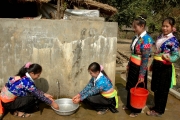
Economic growth together with improvement of people's life: Theory and practice in Vietnam
(LLCT) - In order to improve people's living standards (PLS), in addition to the economic growth, the regulation on distribution of economic growth results by the government plays a very important role. In recent years, the achievements of economic growth have contributed to improving the quality of people's lives, however, there have been many challenges that require the Government of Vietnam to take specific and appropriate measures to ensure both promotion of economic growth and improvement of people's living standards.

Organization of the political system’s apparatus: The central issue in building a fast and sustainable developmental regime in Vietnam
(LLCT) - If a developmental regime is considered to be the official and unofficial rules stipulating the operation of elements to achieve the purpose of developing the nation, the political regime clearly plays a central and decisive role in its function. A political regime has organic association with the apparatus of the political system, and both the former and the latter become the conditions and premises of each other. The political system’s apparatus is the subject which builds, improves, and operates the developmental regime, of which the political regime is first and foremost. In turn, the political regime stipulates and contributes to the development and improvement of the political system’s apparatus. On this assumption, this article is composed with a desire to explain the roles, positions, meanings, real situations, issues, and solutions to further streamline the political system’s apparatus - a significant factor for the political regime in particular, and for the regime which ensures the fast and sustainable development in the current context.
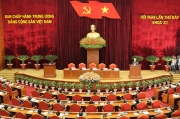
Views of the Party on preventing “office term-bound thinking”
(LLCT) - Together with the “group” interest and obsession with achievements, “office term-bound thinking” has become a “disease” causing much harm to the Party and dissatisfaction among the people. To successfully implement the Resolutions on building the Party and personnel work, it is necessary to fully identify the connotations of the concept of “office term-bound thinking” and its manifestations so as to provide solutions for its prevention.

Ho Chi Minh Thought on power control
(LLCT) - From the very early stage, Ho Chi Minh, the founder of the Communist Party of Vietnam and the first Democratic Republic in Southeast Asia, understood that power always tends to corrupt. Therefore, he had put considerable efforts into finding ways to control the power of administrators. In Vietnam, power control has recently “emerged” as a matter of urgency. The whole political system, headed by the Communist Party, should learn from Ho Chi Minh Thought and experience to achieve power control.
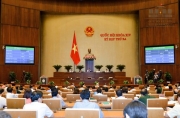
The Party’s awareness development on state power control
(LLCT) - State power and State power control are central issues in the political life of every country. State power is always two-sided: On the one hand, it is an essential factor for social organization and management; on the other hand, it imposes risks on degeneration leading to autocracy and dictatorship, which is against the interests of the people as the subjects of State powers. The Party’s awareness and development of theoretical thinking on power control in general and State power control in particular are of important significance, being the theoretical basis for developing the State power control mechanism in Vietnam. This paper contributes to clarifying the process of the Party’s awareness and theoretical foundation on State power control in the renewal period; proposing some solutions to continue the development and completion of the State power control mechanism in Vietnam today.
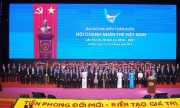
Maturation of the CPV’s theory on the private sector in the renewal period
(LLCT) - More than 30 years of renewal also means over 30 years of developing the Party's theory on the private sector, with three fundamental breakthroughs: 1) The 6th Party Congress, with new perspectives on the long-term role and position of the private sector; 2) The 10th Party Congress, with new awareness of the private sector as one of the accelerators for the economy; 3) The 12th Party Congress, with the view to consider the private sector as an important motive for the economy. In order to implement the Resolution of the 12th National Party Congress, the Party Central Committee’s 5th Plenum has issued Resolution No.10 on private sector development.
Journal Archives
Journal Archives
Media
Photo Gallery
Contact us

 Theory Research
Theory Research


